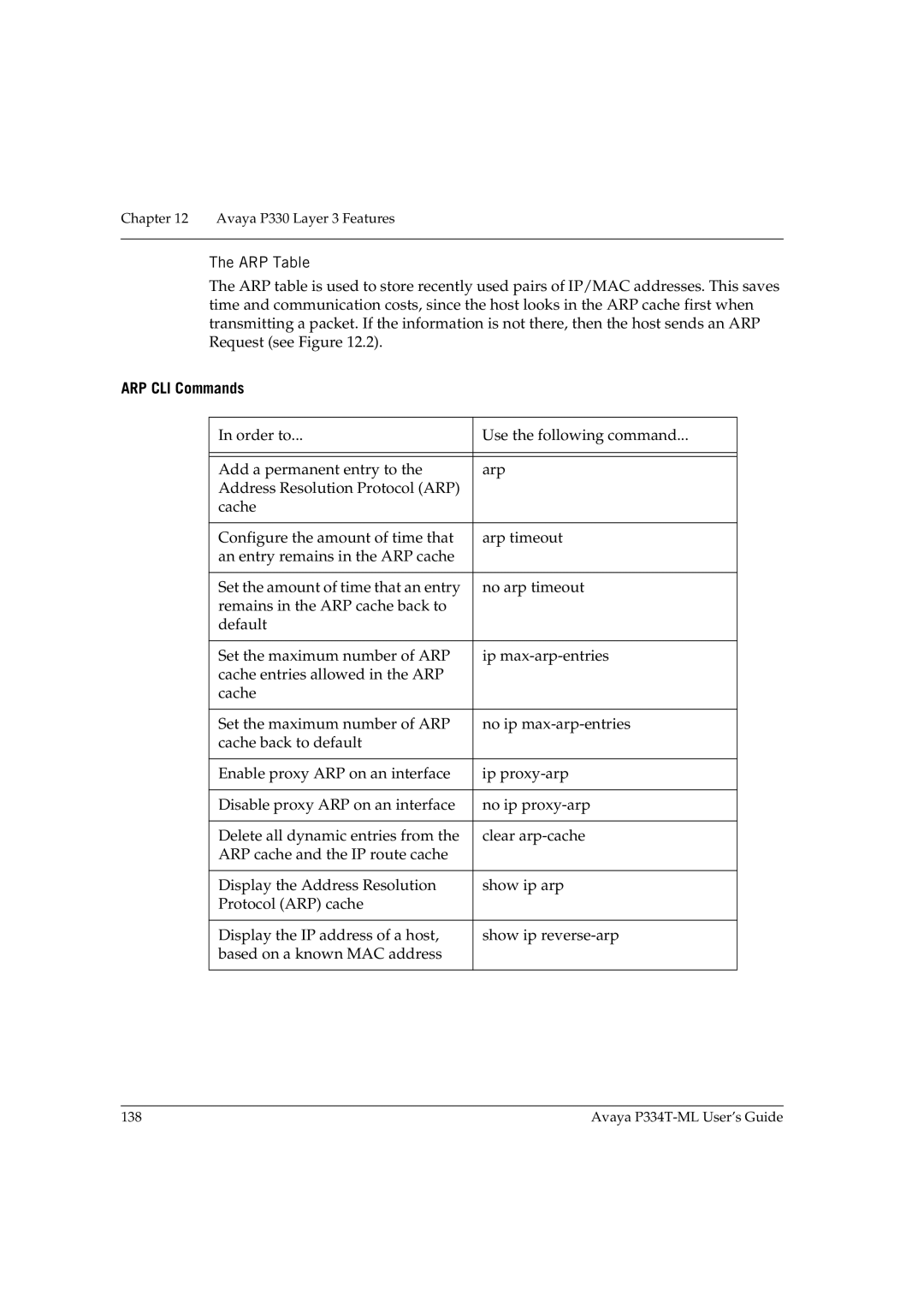
Chapter 12 Avaya P330 Layer 3 Features
The ARP Table
The ARP table is used to store recently used pairs of IP/MAC addresses. This saves time and communication costs, since the host looks in the ARP cache first when transmitting a packet. If the information is not there, then the host sends an ARP Request (see Figure 12.2).
ARP CLI Commands
In order to... | Use the following command... |
|
|
|
|
Add a permanent entry to the | arp |
Address Resolution Protocol (ARP) |
|
cache |
|
|
|
Configure the amount of time that | arp timeout |
an entry remains in the ARP cache |
|
|
|
Set the amount of time that an entry | no arp timeout |
remains in the ARP cache back to |
|
default |
|
|
|
Set the maximum number of ARP | ip |
cache entries allowed in the ARP |
|
cache |
|
|
|
Set the maximum number of ARP | no ip |
cache back to default |
|
|
|
Enable proxy ARP on an interface | ip |
|
|
Disable proxy ARP on an interface | no ip |
|
|
Delete all dynamic entries from the | clear |
ARP cache and the IP route cache |
|
|
|
Display the Address Resolution | show ip arp |
Protocol (ARP) cache |
|
|
|
Display the IP address of a host, | show ip |
based on a known MAC address |
|
|
|
138 | Avaya |
